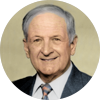First of all, I believe we need to rally as many chiropractors as possible that would be interested in getting on radio and television talk shows. Obviously, this type of thing does not appeal to every chiropractor. However, I believe it would be a safe estimate that at least five percent of the profession would eagerly like to become media oriented. Based on 45,000 chiropractors in America, that comes to well over 2,000 doctors of chiropractic, more than enough to do the job.
Imagine for a moment if 2,000 skillfully-trained chiropractic communicators converged on radio and television stations and newspaper offices across the country with the powerful message of what chiropractic has to offer the public. The impact would be so profound that it would literally set the nation back on its heels. There would be a national awareness and movement toward chiropractic, the likes of which this country has never seen before. The best part would be that it would not cost our profession an arm and a leg to do it. It would take, however, a total commitment on the part of a small segment of our profession to learn what to say, how to say it, and then get on these talk shows and do it.
Many chiropractors would seriously consider becoming media oriented but do not have the available facts at their disposal and the necessary training to do the job well. Attempting to appear on talk shows when unprepared for the occasion could be embarrassing to the chiropractor and the profession. Fear is a major factor which detours many potentially fine chiropractic communicators.
The answer lies in learning everything you can about approaching the media and then how to respond to virtually any questions or comments that they may throw at you during an interview. A good practice to overcome fear of public speaking is to speak before small groups of your patients in your office. Gradually, as you develop more confidence when speaking "on your feet" you can increase the size of your audiences until you are comfortable with any size group.
Actually, we should never get so blase with audiences that there will not be some adrenaline flow. It makes you perform better. Meanwhile, acquiring the knowledge and secrets of public speaking and practicing them faithfully will automatically bring confidence.
When you finally get on talk shows it will not be enough to simply say that chiropractic is effective. Other methods may also be effective -- though not as effective -- but people will tend to stay with the old and established ways of treatment. The only way you will get them to change their treatments if they are shown that your way is superior to others for their select ailments. Please note I clarified "for select ailments" which is critical to prevent misunderstandings or misrepresentations.
It is important to also stress that the treatment is safe and more cost effective. One of the big problems facing insurance companies, employers, and currently being wrestled with by Congress is cost effectiveness and safety; both are critical in health care.
It will not be enough to mention superiority, safety, and cost effectiveness without thorough documentation. The public is so jaundiced by so much advertising that simply stating these facts without documentation will not change their thinking. And then the documentation has to come from highly respectable independent sources. Chiropractic sources will be viewed as self-serving, i.e., citing the findings of the British Medical Journal study, the RAND study from UCLA, and state workers' compensation studies. Medical studies carry more weight when the competition says nice things about you.
ACA's "Operation Evidence" is a good example of aggressive advertising that "tells it like it is" then provides solid documentation to support its statements. It is available free of charge to all ACA members and $300 to non-members, which can be applied to their membership application fee. Every chiropractor should get this set of ads; they are superb. They can be used in their local newspapers.
Yet, we can't stop here because it is still not enough. We need to get people with high profiles such as motion picture, radio and television stars, prominent columnists, and people from all walks of the entertainment field to pick up the baton and run with it. This will occur if enough chiropractors converge on the media and are able to motivate enough listeners with our facts; the facts are too powerful to ignore. Legislators should also be included in this group. The broader the base of supporters and non-chiropractic boosters we can get, the better.
Good communicators are not born. Winston Churchill spoke with a lisp and was able to overcome his handicap and become one of the greatest communicators of all time. He labored for hours on passages and phrases in his speeches before he would be satisfied that they flowed correctly. This is what every chiropractor who chooses to become media oriented must do. Get all of the available literature you can on public speaking, have "round table" meetings with other chiropractors who have common interests, and practice, practice, and practice.
Experts tell us that how we communicate carries greater impact than what we communicate. With the top notch information that we have going for chiropractic such as the RAND study, the British Medial Journal study, workers' compensation studies, many of the findings in the federal court case against the AMA, among others, we have a double-win situation. With proper training, we will have both topnotch information and presentations. Combined, they make an unbeatable duo.
Chester Wilk, D.C.
Chicago, Illinois
Click here for previous articles by Chester Wilk, DC.





